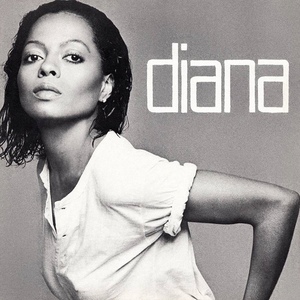Published on Feb 8, 2009
From the opening notes of “Upside Down,” you know that we have arrived at the year 1980 in a big way. Nile Rodgers and Bernard Edwards are back for one more go ‘round, and they couldn’t have picked a better artist to team up with than Diana Ross. Their trademark formula of varied tempos over the course of eight solid songs is replicated to perfection on Diana, Miss Ross’ tenth solo album. With its chunka-chunka rhythms, “Upside Down” will get you up on your feet dancing for sure.
The second track, “Tenderness,” has some lilting strings and great background vocals, all handled effortlessly by — who else — Chic. And while it suffers from a lack of melody, “Friend To Friend” is a vocal showcase for Diana (though we have come to expect nothing less from her over the years). Wrapping up the first half is the second single “I’m Coming Out,” which has become something of a gay anthem since its release — that is, until it was unwisely handed over to rappers Notorious B.I.G. and Puff Daddy for their heavily sampled hit single “Mo Money, Mo Problems.”
The next track up is “Have Fun Again,” a sing-songy kind of thing that either gets on your last nerve or under your skin in a good way, depending on your mood. I always have an image of Diana in pigtails cavorting on a playground imploring us adults to come join her for some childhood play and harmless frivolity. We all have an inner child, now don’t we? This polarizing track is followed up by the lesser-known single “My Old Piano,” which is something of a sparkling kiss goodbye to the age of disco. Its silky lounge flair has an energy that is positively infectious and leaves the listener wondering how Ross and company pulled it off.
Closing out Diana is the sultry ballad “Now That You’re Gone” and the repetitive yet festive “Give Up.” I have always thought “Now That You’re Gone” should have been made into a single, or at the very least a selection to be performed live. Like “My Old Piano,” I have never heard anything like it from Diana, or anyone else, since. The originality of these tunes is what sets this package apart from anything else that was released at the time. Sure, Diana is often categorized as a disco record, but that is an unfair assessment that does nothing to shore up its many other virtues.
Legend has it that when Diana heard the playback of this album for the first time, she was disappointed and immediately ordered it remixed so that her vocal was more prominent. This is a prime example of how producers sometimes seize total control of a project without the artist ever knowing it. However, these three egos arrived at the final result, and Diana dazzles from start to finish. Unfortunately for Diana Ross (who actually switched labels after this record), it would be all downhill from here.
“
